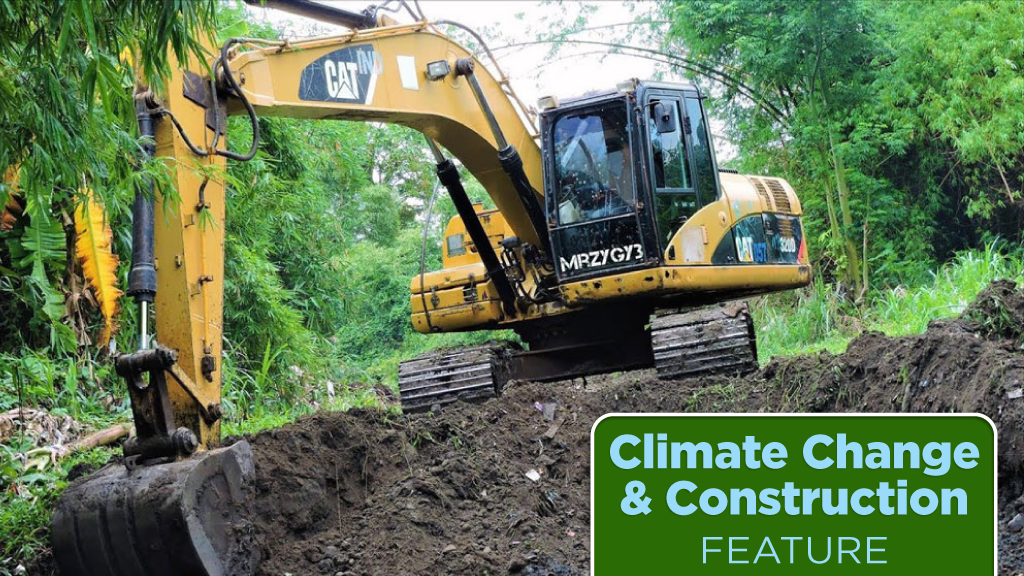Although some may feel ESGs are a symptom of increased “woke capitalism” in today’s culture, construction companies of all sizes should not be lulled by the well-publicized backlash to ESGs.
ESGs have become a heated political issue in the United States, where 14 U.S. Republican states have enacted laws prohibiting investments using social factors for investment strategies. However, federal agencies like the U.S. Security Exchange Commission and Federal Trade Commission appear undaunted and are on increased alert for “greenwashing,” and seeking to update their rules.
Large banks and corporations have been slow to act.
A 2022 World Benchmarking Alliance report says although “37 per cent of leading financial institutions assessed have disclosed long-term net-zero targets, disappointingly, of these commitments only two per cent have been translated into interim targets applied across the institution’s financing activities, of which only one per cent are backed by scientific evidence.”
Canada’s financial system ranks poorly. Investors for Paris Compliance (I4PC) gave only one Canadian bank a grade higher than “C,” along with the revelation that two of the country’s largest insurers are currently financing the equivalent of three quarters of Canada’s total emissions.
Global corporations are under active attack.
In the largest penalty ever assessed for misleading ESG disclosure, Brazilian mining company Vale will pay US$55.9 million for its allegedly false and misleading ESG disclosures concerning the safety of its dams.
Meanwhile, Conor Chell, Laura Roberts and Maya Douglas, ESG specialists in MLT Aikins LLP’s Calgary office, write activist shareholders are pursuing directors of the oil giant Shell for presenting “an allegedly unrealistic net-zero plan. Specifically, ClientEarth alleges that Shell’s net-zero plan lacks short- and medium-term targets to reduce Scope 3 emissions, which account for more than 90 per cent of Shell’s emissions.”
Action is coming to Canada.
Chell, Roberts and Douglas say the Competition Bureau has confirmed its investigation into a greenwashing complaint launched not only against the Royal Bank of Canada, but also against the Canadian Gas Association over its claim natural gas is clean.
“Overly promotional” ESG disclosure is at the heart of a November 2022 biennial report by the Canadian Securities Administrators on its Continuous Disclosure Review Program, say Chell and Roberts in a separate article.
What about Canadian construction?
Although it won’t take effect immediately, and at first will only impact larger public entities and their directors, Chell told the Daily Commercial News greenwashing liability concerns and reporting requirements will ultimately extend beyond large builders and developers, right down the construction pyramid to contractors and subcontractors.
As an example, Chell describes a scenario wherein a smaller company misrepresents its ESG performance to a bank or public company. If something goes wrong, the bigger entity or regulator will look for someone to hold liable.
He expects the level of diligence on the part of banks and public companies will also increase and will move beyond simple questionnaires as mandatory reporting comes into effect.
“In fact, we are already seeing these sorts of requests coming from banks to companies they are lending to or investing in. Similarly, many public companies are developing ESG screening tools, which so far have taken the form of questionnaires sent to suppliers and customers requesting ESG-related information as a prerequisite to doing business. Many banks and big companies are actively working on detailed methodologies in order to facilitate this additional diligence when it comes to ESG.”
Most ESG diligence from banks and public companies currently relates to climate related information, said Chell. However, this is set to expand.
In a recent update, Chell, Roberts, Douglas and Aaron Marchadour detail proposed federal legislation, The Fighting Against Forced Labour and Child Labour in Supply Chains Act, expected to come into force in 2024.
The act will require those organizations working in Canada that meet two out of these three criteria: has at least $20 million in assets; has at least $40 million in annual sales; or has at least 250 employees, “to prepare and submit an annual report setting out the steps they have taken to reduce the risk that forced labour or child labour are used anywhere in their supply chains.”
Given the severity of fines for non-compliance payable by both corporations and their directors, Chell and associates suggest all companies take steps to ensure their ESG reporting is consistent and verifiable.
“Even if an organization is not currently subject to the act, these risks and issues should be considered as part of your broader ESG strategy.”






Recent Comments